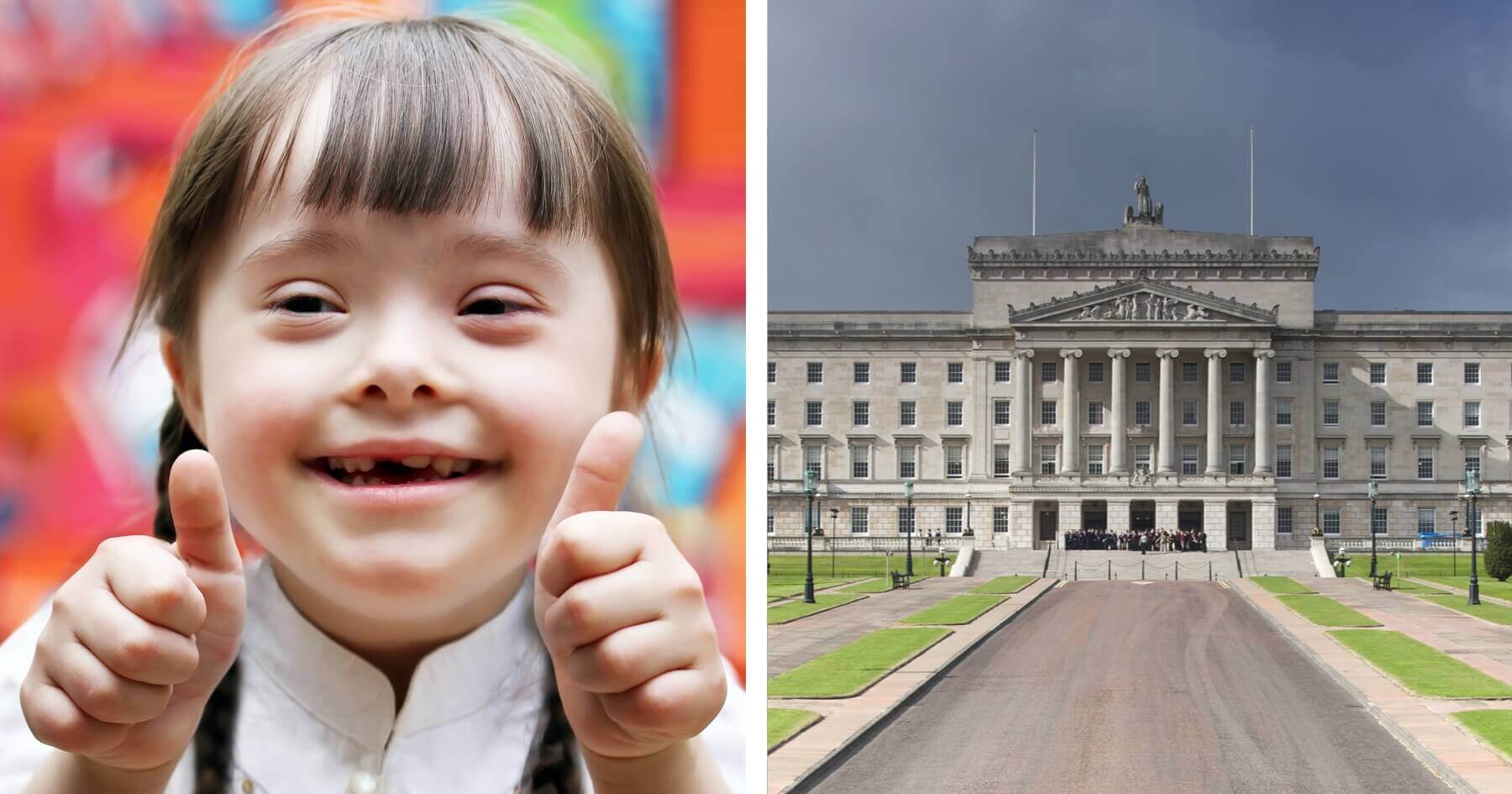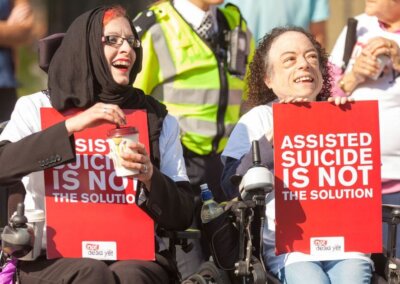The Severe Fetal Impairment Abortion (Amendment) Bill has passed Committee Stage at the Northern Ireland Assembly.
The Bill proposes removing the current grounds in the abortion regulations that were imposed on Northern Ireland by the British Government in 2020, which allow abortion for babies with disabilities such as Down’s syndrome, cleft lip and club foot.
Over 99.5% of the 9,125 submissions to a Northern Ireland Committee for Health consultation on the Bill supported the proposed law change. Only 36 were not supportive.
Strong support from the disability community and beyond
1,608 people with Down’s syndrome and their families signed an open letter to party leaders in Northern Ireland urging them to support the Bill.
Heidi Crowter, a disability rights campaigner who has Down’s syndrome and has been a vocal advocate of the amendment, said: “I’m so happy that the Bill has passed this stage and I’m so happy to have been a part of this, especially getting the chance to speak to the Northern Ireland Health Committee. I am told that the Bill will move on to the next stage and I will keep talking about this to everyone, and help where I can, because the law as it is, is downright discrimination”.
Lisa Allen from Belfast, whose son Aaron has Down’s syndrome and had a number of heart defects when he was a baby, said that nearly six years on “he is amazing his consultants and has still avoided surgery. Aaron is a loveable, strong and determined little boy. To think that now a baby like Aaron could have his life ended because of Down’s syndrome breaks my heart. He has shown that he is strong, able and determined from day one”.
Another mother, Sara McNeill, who supports the amendment and whose son, Tom, has Down’s syndrome, said: “I would urge any parent faced with the decision of what to do, not to be blinded by poor, outdated preconceptions of what Down’s syndrome is. I thought our outlook seemed bleak when our doctor first shared her suspicions about our brand new baby… but now I know better”.
Lynn Murray, spokesperson for Don’t Screen Us Out and mother of Rachel, who has Down’s syndrome, said: “By removing a small discriminatory clause, this Bill provides an opportunity to sever the connection between congenital disability and abortion, signalling a greater acceptance of people such as those who have Down’s syndrome. We look forward to an open debate and discussion on the issues in the coming weeks, with the ultimate hope that the Bill will be passed, and the Down’s syndrome community will have something to celebrate”.
The amendment will now proceed to Consideration stage.
Right To Life UK spokesperson, Catherine Robinson, said: “The amendment’s passage through committee stage is definitely good news, as it takes Northern Ireland one step closer to this important law change becoming law. At the Health Committee itself, the amendment faced opposition from abortion ideologues, and Sinn Féin and the SDLP failed to vote at all”.
“The discrepancy in the law is a direct attack on people with disabilities and represents the state’s judgement that the lives of people with disabilities are not as worth living as those without. This amendment aims to end this gross and unjust discrimination”.












